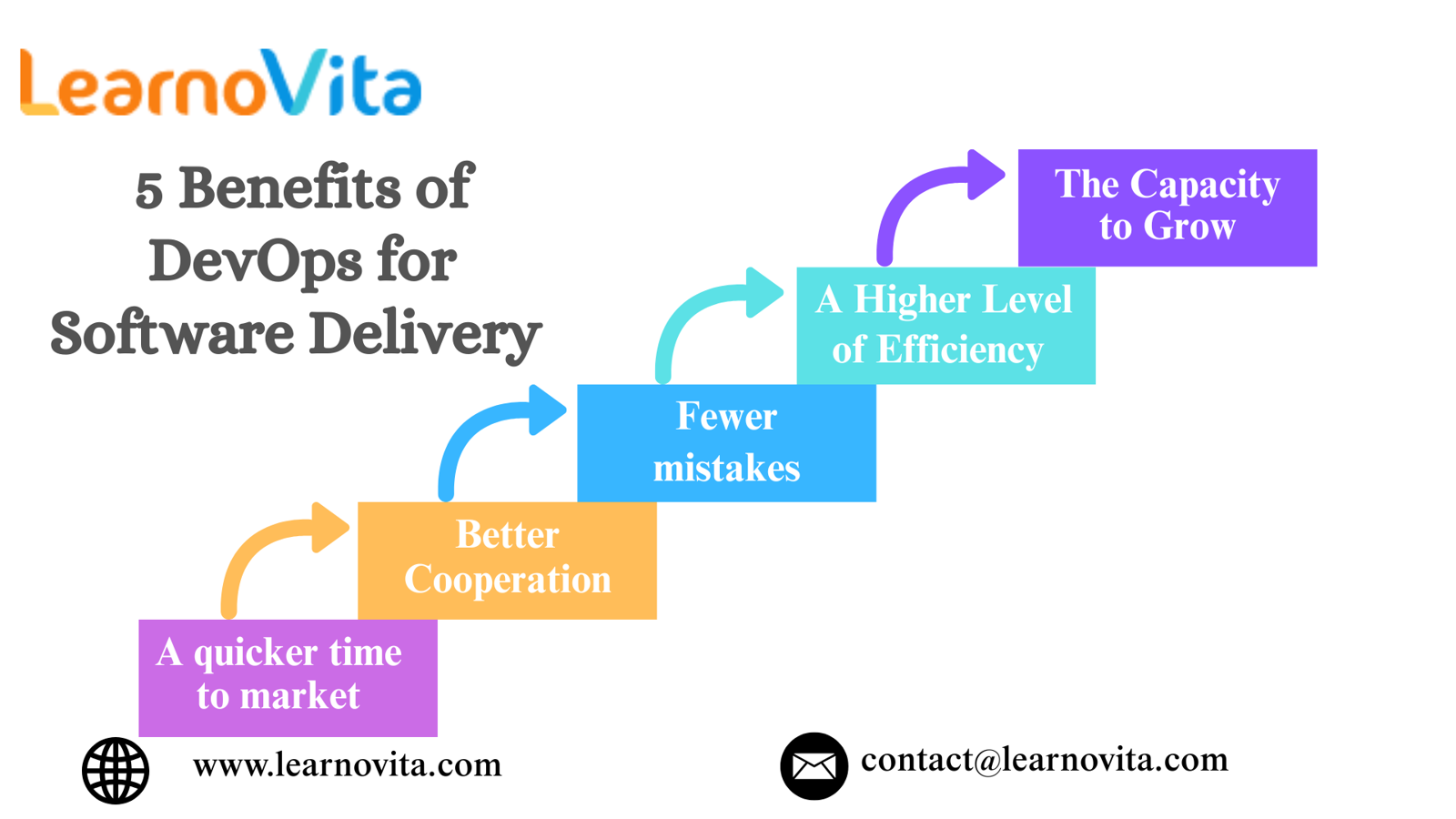DevOps is more than just a popular trend it’s a powerful methodology that revolutionizes how businesses design, develop, test, deploy, and maintain software. By automating workflows, streamlining processes, and promoting collaboration, the DevOps Course in Bangalore helps organizations deliver software faster and more reliably. In this article, we’ll cover what DevOps is, why it matters, its core benefits, and proven strategies for effective implementation.

What is DevOps?
DevOps is both a cultural shift and a set of practices designed to bridge the gap between software development (Dev) and IT operations (Ops). It creates a continuous delivery pipeline where coding, testing, and deployment happen seamlessly, ensuring faster releases without sacrificing quality.
Core principles of DevOps include automation, collaboration, and Continuous Integration/Continuous Delivery (CI/CD)—essential for achieving efficiency in today’s fast-paced digital environment.
Key Advantages of DevOps for Software Delivery
1. Accelerated Time-to-Market
DevOps optimizes the entire software development lifecycle, allowing businesses to release new features and updates quickly. Automated testing and CI/CD pipelines ensure faster and smoother deployments.
2. Improved Team Collaboration
DevOps fosters a shared responsibility model where development and operations teams work together toward common goals. This eliminates silos, minimizes bottlenecks, and aligns teams for better outcomes.
3. Better Quality with Fewer Errors
Through automation and continuous testing, DevOps detects issues early, reduces manual mistakes, and enhances overall software reliability. Want to advance your career? Explore our Best Software Training & Placement Programs designed for hands-on experience.

4. Increased Productivity
By automating repetitive processes like testing and deployment, teams gain more time for innovation and creative problem-solving.
5. Effortless Scalability
With cloud integration and automation, DevOps enables businesses to scale operations smoothly, handling higher volumes of updates without impacting performance.
Best Practices for Faster Software Delivery with DevOps
1. Build a Robust CI/CD Pipeline
A strong CI/CD setup ensures continuous integration, testing, and deployment with minimal manual intervention. Tools like Jenkins, GitLab, and CircleCI make this possible.
2. Leverage Automation Tools
Automation is at the heart of DevOps. Use Ansible for configuration management, Docker for containerization, and Kubernetes for orchestration.
3. Adopt Infrastructure as Code (IaC)
IaC allows infrastructure to be managed like software code, supporting version control and automated provisioning through tools like Terraform or AWS CloudFormation.
4. Enable Continuous Monitoring
Monitor performance in real time using Prometheus, Grafana, or Datadog to detect and fix issues proactively before they affect end users.
5. Incorporate Security with DevSecOps
Security should be integrated from the beginning of the development cycle. DevSecOps ensures vulnerabilities are addressed early without slowing down delivery.
Conclusion
In today’s competitive digital landscape, DevOps plays a vital role in accelerating software delivery and maintaining quality. By combining automation, CI/CD, and a collaborative culture, businesses can reduce costs, boost efficiency, and innovate faster. As more organizations embrace DevOps, its impact on modern software development will continue to grow.


Write a comment ...